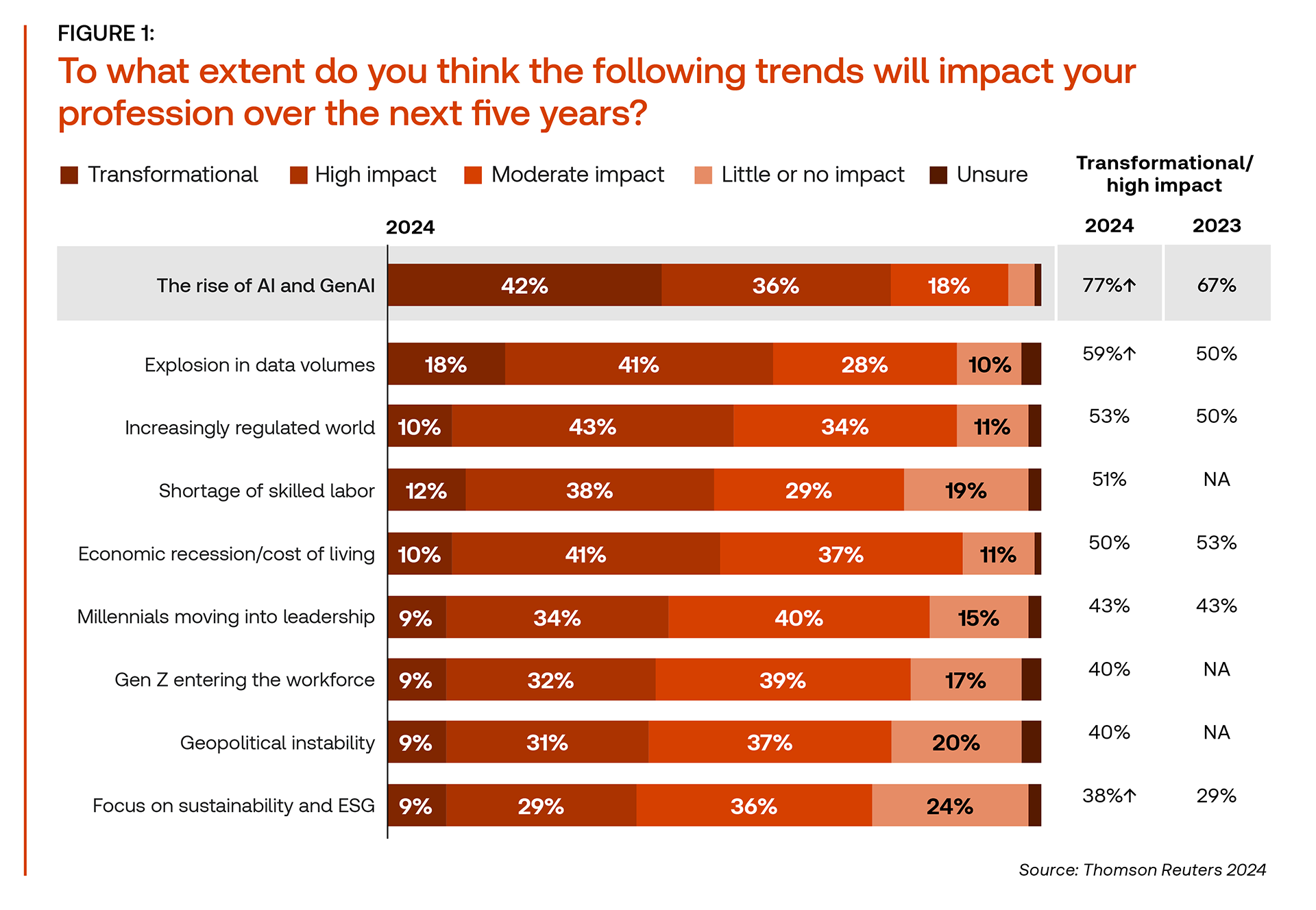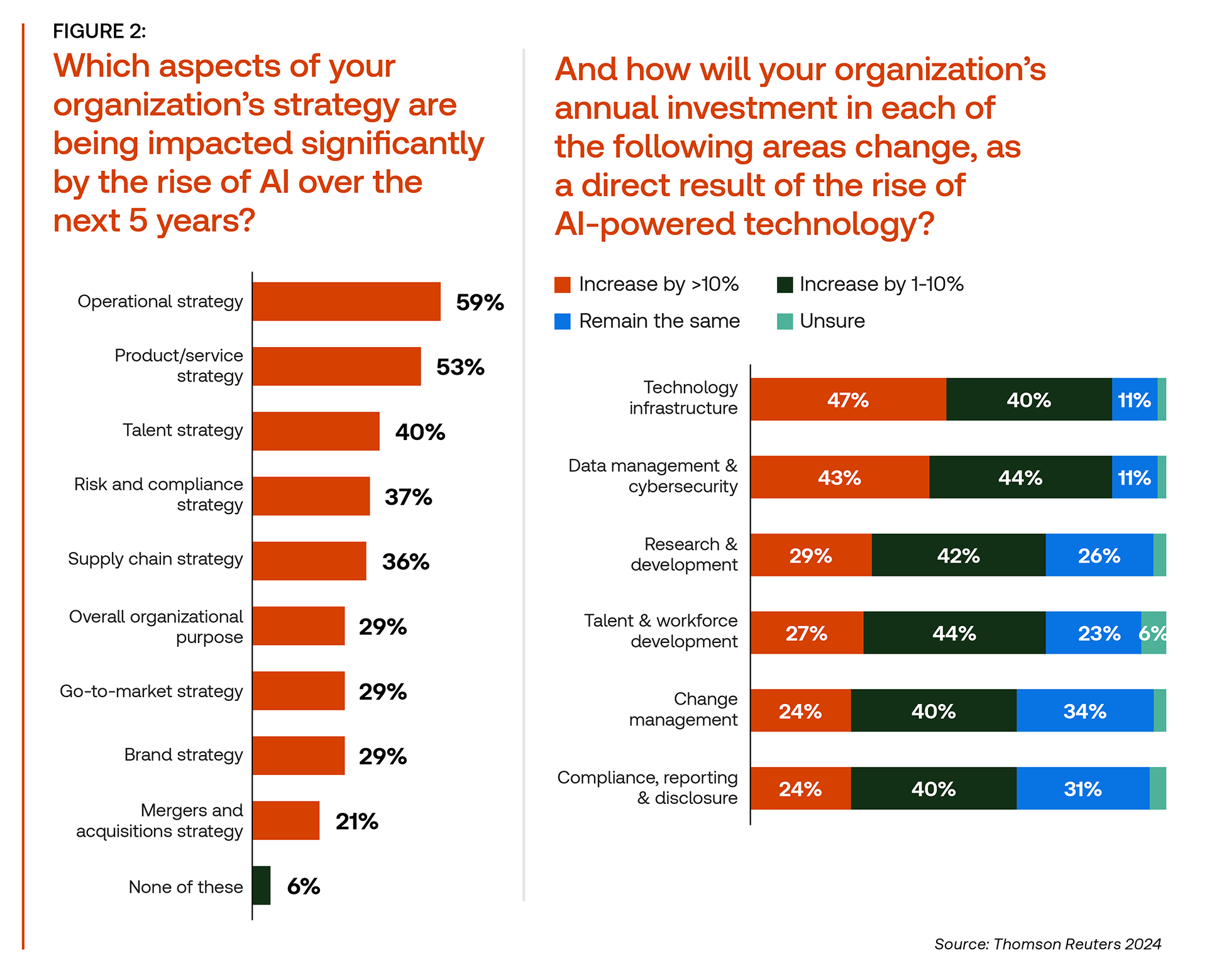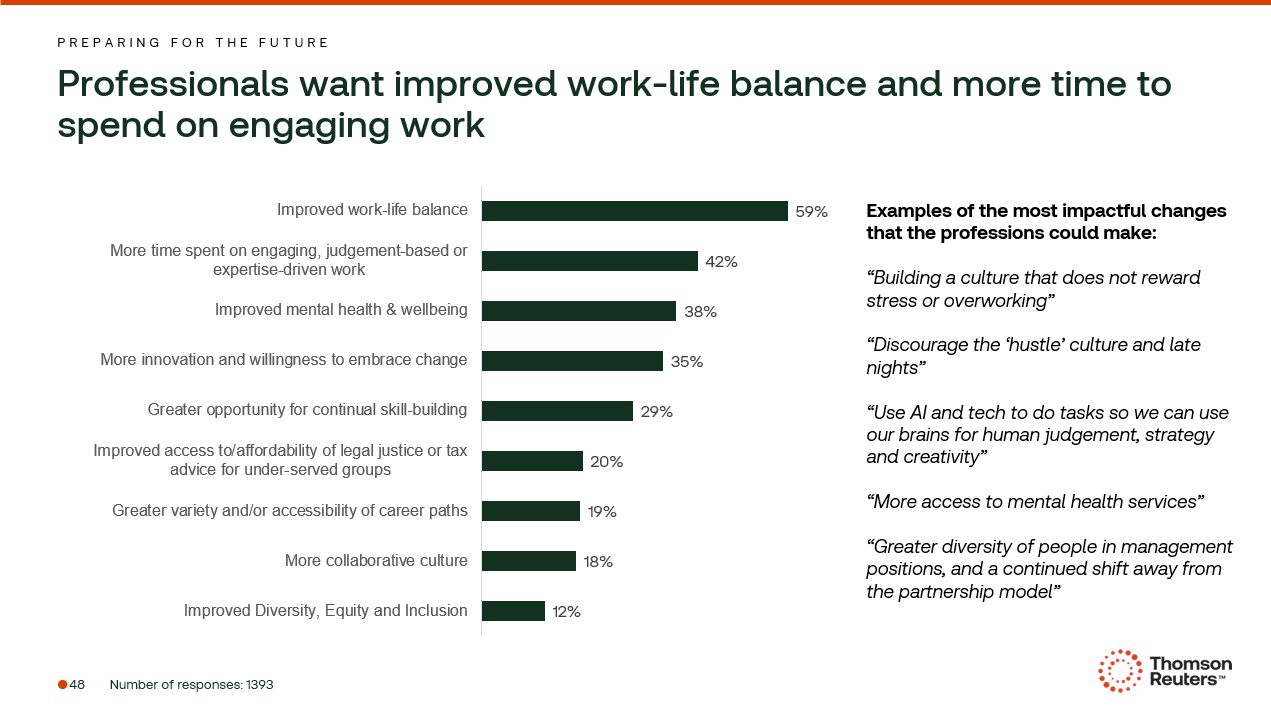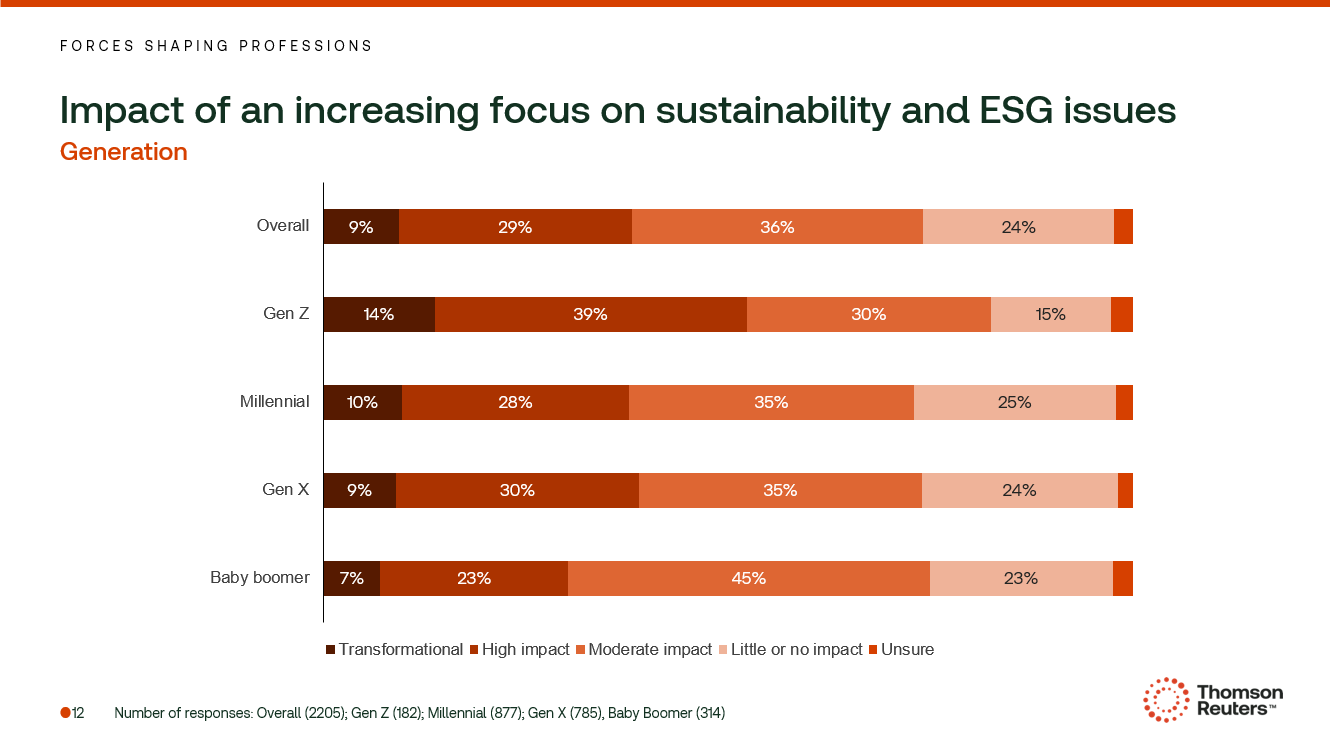While ESG practices are not a top priority for most corporate executives, the integration of AI and ESG is emerging as a crucial strategy for enhancing operational efficiency, talent management, and organizational resilience
One-in-five corporate C-Suite members said that developing or demonstrating environmental, social, and governance (ESG) practices and standards is a top five priority for them, according to the Thomson Reuters Future of Professionals report. And 38% of the more than 2,200 respondents to the survey, which includes C-level executives, indicated that a focus on ESG and sustainability would have a transformational or high impact on their profession over the next five years — which is 9 percentage points higher than last year.
However, when compared to the 77% of professionals who said they’re expecting the rise of artificial intelligence (AI) and generative AI (GenAI) to have a transformational or high impact — more than twice the level of those who indicated ESG would be that impactful — you can see how professionals are ranking which trends they believe may be most consequential to the current business landscape.

Yet, in between the top and bottom spots in the above graphic are a range of megatrends, and most of these can be analyzed through an expanded lens of ESG. For example, responsible development of AI and GenAI to address concerns around trust, accuracy, ethics and privacy are important governance issues, which make AI and GenAI an important ESG issue as well. And increasing regulations around the world on ESG reporting are also a key governance issue, as seen through a risk management lens. Further, the trends listed that focus on human capital — such as shortage of skilled labor and those involving Gen Z and Millennials professionals — are key aspects of social issues.
Indeed, assessing the list using a wider frame of reference, one could easily argue that the majority of the trends cited are ESG issues.
Interestingly 44% of C-suite respondents indicated that ESG would impact their organizations’ operational strategy, but only 26% thought that ESG would impact their organizations’ talent strategy. However, companies’ operations obviously use financial and human capital, and without these, operations would suffer.
Given all this, it’s simple to see how ESG — along with the rise of AI and GenAI, to which it is linked — is a capability accelerator. Moreover, ESG runs through those areas of a company that is undergoing major change. For example, when C-Suite respondents were asked, “How will your organization’s annual investment change as the direct result of AI-power technology?” a significant portion said they saw increases by more than 10% across data management, which includes ESG-related data, cybersecurity, compliance, reporting and disclosure — all arguably governance issues. Regarding the latter, a major challenge that companies are facing is the onslaught of ESG-related regulation, with many seeing AI-powered technology improving the way this can be addressed going forward.

Likewise, about one-quarter of C-Suite respondents said they believed that AI-enabled tools will enhance human capital and talent strategies — also a key social issue.
AI and ESG power talent strategies
The Future of Professionals report also point to how AI is offering professionals improved work-life balance, more engagement in their work, and better mental health and well-being.

In addition, ESG is highly important to many younger employees, with more than half (53%) of Gen-Z employees, who are responsible for shaping the workplace of the future, said they believe that ESG and sustainability will have a transformational or high impact on their profession. This is a significant difference when compared to Millennials (38%) and Gen X (39%), respectively, who said the same thing.

In what may be the report’s most significant findings, use of GenAI among professionals is expected to free up four hours of work per week by this time next year. This is a critical finding because that is time that can be spent by professionals to pursue better work-life balance and well-being now. As shown, both are among the top preferences that respondents cited, and both are key ingredients for improving talent retention and organizational resilience.
Upskilling employees, another source of change, is a critical component of operational and talent strategies as well as organizational resilience. Therefore, it’s not surprising that among skills rising in demand are curiosity for new technology, adaptability, efficiency, problem-solving and creativity, according to the report.
Key actions for companies and leaders
So, how can professional service firm leaders use the findings of the Future of Professionals report to further their own goals around resilience, sustainability, and talent retention? The report outlines four key areas for leaders and organizations to focus on in order to successfully capture the value creation potential of GenAI while improving operational and talent strategies. These include:
Developing GenAI skills — To start, conduct an assessment of current Gen AI skill levels among your employees, and create learning experiences to address the gaps. Combine this with a fully developed talent acquisition and retention strategy to ensure future employees have the skills that will be most needed.
Capture productivity gains — Initiate a pilot project within a low-risk function, gather feedback, and learn in what areas you might be able to leverage potential improvements in productivity. Using these findings, adapt practices that will enable these improvements across the board, and then, scale.
Explore areas of value — Create a cross-generational committee to explores AI use cases, conduct a trial on the most promising ones, and then expand experimentations in use cases from there.
The intersection of AI and ESG is not just a trend but a pivotal strategy for future-proofing many professional services organizations. While AI and GenAI technology promises to enhance operational efficiencies and improvements in human capital management, an integrated strategy to realize the gains is essential.
The confluence of these trends signifies a transformative shift in how businesses operate, innovate, and engage with their workforce. As companies navigate the complexities of modern business landscapes, investing in AI and addressing ESG issues will be crucial for corporate strategies that will help drive growth, foster resilience, and ensure long-term success.
You can download a full copy of the Thomson Reuters Future of Professionals report here.








